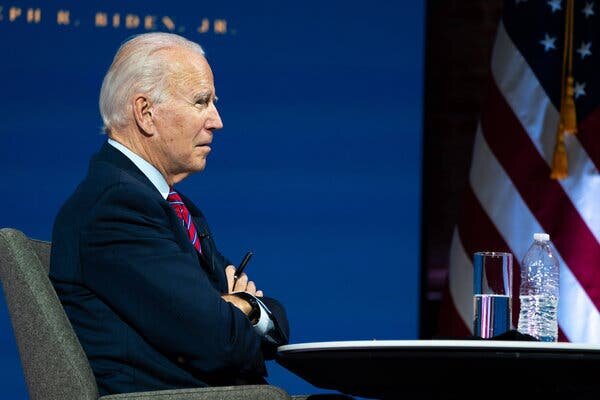Biden will continue ‘record arms sales to the region’: Georgetown University professor

TEHRAN - Director of the Center for International and Regional Studies at Georgetown University's School of Foreign Service in Qatar says the incoming Biden administration will continue “close relations and cooperation” with Israel, the Persian Gulf Arab states and maintain “record arms sales to the region”.
Mehran Kamrava also says, “If Tehran indicates that it is willing to observe Iran’s commitments under the JCPOA, then that would strengthen the position of those in the new U.S. administration who would like to see a resumptions of the nuclear deal.”
Kamrava also predicts there would be “less overt hostility toward Iran” during the Biden administration.
Following is the text of the interview:
Q: Biden has introduced his foreign policy team. Antony Blinken is named secretary of state and Jake Sullivan national security advisor. What is your assessment of the team?
A: This team is made up of diplomats and figures long associated with the Democratic party establishment. They have had considerable experience in the Obama administration and appear to share the views that the United States has a right and a responsibility to intervene in conflict areas around the world to spread its liberal values. As such, they are likely to be liberal interventionists.
Q: What will be the approach of Biden's foreign policy team toward West Asia?
A: Biden’s approach to the Middle East (West Asia) is unlikely to be very different from Obama in his first six years in office: friendly with regional powers, though not based on personal relationships, as has been the case with the Trump White House; continued close relations and cooperation with Israel, and the states of the Persian Gulf; continued record arms sales to the region; less eagerness to withdraw American troops quickly from Iraq and Afghanistan; and less overt hostility toward Iran but continued tensions in the short run.
Saudi Arabia and the UAE have decided that having Israel formally on their side gives them strategic advantage over Iran.”Q: Blinken had spoken about Iran's commitment to the JCPOA when European countries did not fulfill their obligations. To what extent can his personality influence foreign policy decisions toward Iran?
A: That’s a difficult question to answer, and much would depend on how confident the new administration feels in regards to Iran when it comes to the Congress. A lot also depends on the statements and the gestures that come out of Tehran. If Tehran indicates that it is willing to observe Iran’s commitments under the JCPOA, then that would strengthen the position of those in the new U.S. administration who would like to see a resumptions of the nuclear deal.
Q: Obama has told the Washington Post that Biden intends to join the nuclear deal soon after taking office. What do you think?
A: We have to wait and see if that would indeed happen. Biden is likely to return to those American international commitments that Trump pulled out of, including the Paris Climate Accord, various other multilateral trade treaties, and, slowly, the JCPOA. If there is a U.S. return to the JCPOA, initially it will be in the form of subtle and quiet diplomacy rather than a very public return by the U.S. to the nuclear agreement.
Q: Israel’s Netanyahu recently visited Saudi Arabia to meet Saudi Crown Prince Mohammed bin Salman, although Riyadh has denied the visit. What is Riyadh’s goal in normalizing ties with Israel?
A: There are two main objectives in the larger relationship between the Persian Gulf monarchies and Israel. Saudi Arabia and the UAE have realized that the best way to continue to keep their relations with the United States close is to become friends with Israel, which has tremendous influence on the policymaking process in the U.S. Also, Saudi Arabia and the UAE have decided that having Israel formally on their side gives them strategic advantage over Iran. It not only is likely to lessen Israel’s objection that they get more advanced weapons from the U.S., but it strengthens their informal alliance with Israel in dealing with Iran.
